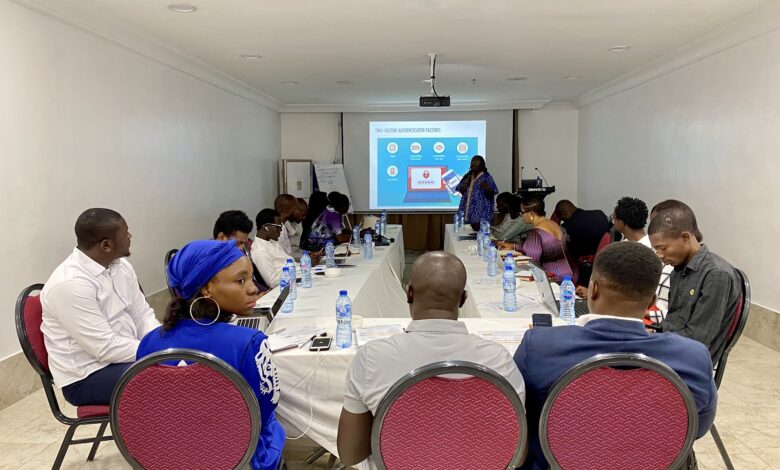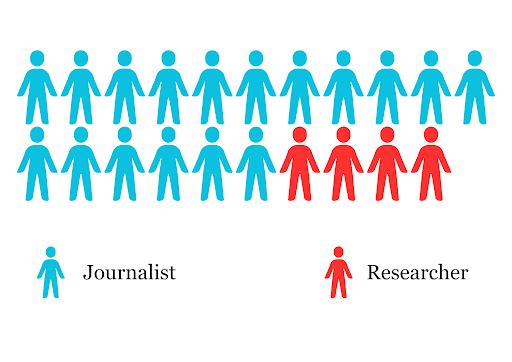CJID/OSF Empowers Journalists And Researchers On Conflict Reporting And Human Rights
CJID in collaboration with the Open Society Foundation has trained 21 journalists and researchers from across Nigeria over the past few days, on conflict and human rights reporting. Participants will have access to a grant opportunity to support their reports at the end of the workshop.

The Centre for Journalism Innovation and Development (CJID), with support from Open Society Foundations (OSF), has trained 21 Nigerian journalists and researchers from across the country on conflict and human rights reporting.
The three days training was held in Abuja this week, where participants were empowered with conflict and human rights reporting skills cutting across data visualization classes, the art of finding hidden conflict stories, impact storytelling, among others. Participants were also given the opportunity to access grant opportunities from CJID/OSF to support their reporting projects at their various locations.
The rising cases of conflict and human rights violations in conflict-affected areas in Nigeria have placed many journalists and researchers in need of training and support to improve their reporting skills, given the sensitivity and importance of the reporting.
Felicia Dairo, the project manager for CJID, explained that the project aimed to promote the reporting of conflict and human rights-related issues in the Lake Chad region which has been devastated by over a decade of armed conflict.
Dairo said “The Lake Chad Basin is home to about 17 million Africans and it’s a region facing a serious humanitarian crisis. Data shows that the region has about 10.8 million people in need of humanitarian assistance and over 2.3 million people, including children, have been displaced from their homes.”
“Sadly, the insurgency and terrorist activities in the region have claimed over 35,000 lives while others have been subjected to various human rights violations such as rape, kidnapping, and other forms of abuse,” she added.
She further added that “These atrocities are committed by some actors, and there are also socio-economic implications to these issues. As a result, CJID identified a compelling need for a holistic investigation into how these violent actors generate and use funds, acquire resources such as fuel and logistical handlers, recruit supporters, and acquire arms and ammunition.”
According to Dairo, “The training was organised to equip journalists and researchers with the required skills and information needed to consequentially report on the evolving conflict in the Lake Chad Basin in the most effective way possible. Grant and training opportunities cater to the needs of the journalists and researchers reporting conflict and human rights-related stories.”

Beloved John, a reporter with the International Centre for Investigative Reporting (ICIR) in Abuja, said “I understand and do stories on conflict and human rights issues across Northeast Nigeria but the dimension of how conflict takes place now makes me feel I need this kind of workshop. The training has been an eye-opener; I understand better the importance of providing information on the conflict.”
According to John, the training has changed her practice in reporting conflict-related stories. “I understand better the need to provide a balanced report and let go of my bias that used to influence my report,” she said.
Idris Mohammed, freelancer and lecturer at the Journalism Department at Usmanu Danfodio University, Sokoto, said “Before I got selected by CJID for the training, I needed advanced knowledge on how to use and manage conflict data.”
“The training has empowered the participants on how to employ various skills and techniques in managing and visualizing conflict data. Therefore, the knowledge gained is very relevant to me because it will enable me to track the trends of conflict and scenarios in northern Nigeria,” Idris said.
“The three-day training was engaging, I must admit. However, the major take-home is telling conflict stories beyond our unaware biases.” Yakubu Mohammed, a conflict reporter from Bauchi State and editor of WikkiTimes, said.
“The genre definitely evokes emotion, but we must disconnect from these emotions to tell a balanced report. Meanwhile, I am glad for the league of resource persons assembled to facilitate the training,” Yakubu added.
Summary not available.
Support Our Journalism
There are millions of ordinary people affected by conflict in Africa whose stories are missing in the mainstream media. HumAngle is determined to tell those challenging and under-reported stories, hoping that the people impacted by these conflicts will find the safety and security they deserve.
To ensure that we continue to provide public service coverage, we have a small favour to ask you. We want you to be part of our journalistic endeavour by contributing a token to us.
Your donation will further promote a robust, free, and independent media.
Donate HereStay Closer To The Stories That Matter




